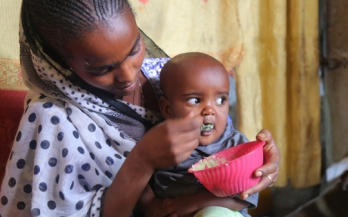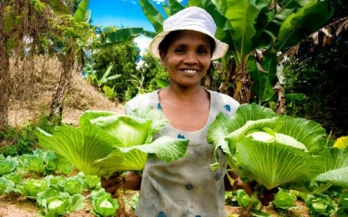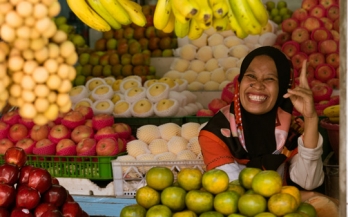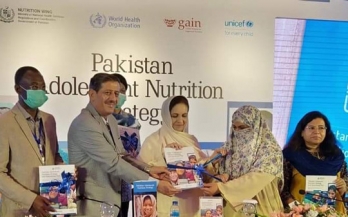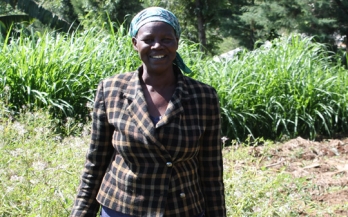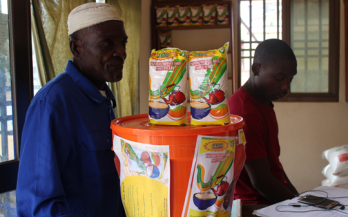Small and medium-sized enterprises (SMEs) shoulder responsibility for around 50% of the food production and 70-100% of food sales in sub-Saharan Africa for key foods such as fruits and vegetables, animal-source foods, and cereals and legumes. As Ethiopia’s population is swiftly shifting to more urban environments, so are food habits, with 83% of foods and beverages purchased in markets, as opposed to 47% in rural areas.
The United Nations Children’s Fund (UNICEF) and the Global Alliance for Improved Nutrition (GAIN) launched today "Food Systems for Children and Adolescents", a special issue of the international journal Global Food Security. This special collection of 11 articles calls for an urgent transformation of food systems that work for and with children.
In a time of many seemingly insurmountable challenges, there is something that we can fix. One thing, which if changed could simultaneously accelerate the end of hunger, ensure everyone has access to a healthy diet, dramatically reduce greenhouse gas emissions, reverse biodiversity loss, and make societies and economies more equitable and resistant to devastating pandemics such as COVID-19.
The Second Global Summit on Food Fortification Virtual Series will kick off today November 6th with a high-level launch event as part of the Micronutrient Forum Global Conference CONNECTED. This year’s Summit will gather thousands of experts on food fortification, staple crop biofortification, food systems, and nutrition. Due to COVID-19 the Summit will go fully digital.
In 2021 we nutrition champions are blessed with not one, but two summits to advance nutrition outcomes. The UN Food Systems Summit (FSS) will take place in September in New York and the Nutrition for Growth Summit will be held in Tokyo in December.
On the recent World Food Day, the clarion call was clearer than ever: We must fix our food systems to improve human health, drive economic growth, and save the planet from environmental collapse. The challenges facing us are wide-ranging. The way the world produces and consumes food causes huge environmental impacts, and yet 3 billion people worldwide are unable to afford a healthy diet, and up to a third of the food we produce is wasted.
A joint undertaking by the Global Alliance for Improved Nutrition (GAIN), the Government of Pakistan, UNICEF and The World Health Organization (WHO), the Pakistan Adolescent Nutrition Strategy and Operational Strategy (PANS) examines the nutritional status of a long-overlooked population and charts out a bold road map for action.
Healthy Diets for Tea Communities is a coalition led by the Global Alliance for Improved Nutrition (GAIN) and the Ethical Tea Partnership (ETP), with funding from with eight leading tea companies to address poor nutrition in tea supply chains in Assam (India), Kenya, and Malawi.
In the midst of the global COVID-19 pandemic, food fortification is a critically important tool for addressing and preventing malnutrition. 6-months into the pandemic, some of the world’s leading development organisations, including UN agencies and international non-governmental organizations in the fortification space, explain how the pandemic is impacting national food fortification programs and recommend actions that should be taken to protect fortification programs at this critical time.
The Government of People’s Republic of Bangladesh has just given the green light to the new Iodised Salt Act 2020 act aimed at improving the monitoring and efficacy of the country’s salt iodisation programme. The new Act will increase and incentivise compliance, as well as strengthen the ability of the regulatory authorities to enforce salt iodisation.
